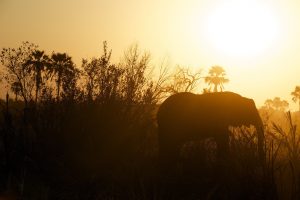From elephants to frogs to freshwater fish, a new report by the World Wildlife Fund says animals around the globe are in danger of rapid decline. Overall, between 1970 and 2012, the report estimates global wildlife populations have dropped by a staggering 58 percent.
As alarming as the overall number is, it obscures certain animal populations that are in an even more precarious state. Specifically, freshwater wildlife in rivers, lakes, and wetlands have declined even faster than average at 81 percent.
Some of the main causes for the dwindling numbers can be attributed to habitat loss, pollution, overfishing, and climate change. In particular, agriculture currently takes up one-third of Earth’s total land mass and makes up 70 percent of all freshwater use.
The Living Planet Report points to major changes being required in both the global food production process as well as human energy needs in order to avoid catastrophe.
“For the energy system, a rapid development of sustainable renewable energy sources and shifting demand toward renewable energy are key,” the report recommends. “For the food system, a dietary shift in high-income countries – through consuming less animal protein – and reducing waste along the food chain could contribute significantly to producing enough food within the boundaries of one planet.”
If we do nothing, the report warns global populations could decline by two thirds by 2020.
The population measurement is not without its drawbacks, however, and critics question the methodology used to come up with the final 58 percent metric. The WWF came to this figure by analyzing 3,700 different species of birds, fish, mammals, amphibians and reptiles – adding up to about 6% of the total number of vertebrate species in the world. Summing up the incomplete and disparate data might fundamentally not make sense.
But the WWF insists the methodology to come up with this figure is sound and it undoubtedly gives an accurate picture of the direction of change, the causes, and the places where we need to take action.
“It’s pretty clear under ‘business as usual’ we will see continued declines in these wildlife populations,” Dr Mike Barrett. head of science and policy at WWF, told the BBC. “But I think now we’ve reached a point where there isn’t really any excuse to let this carry on.”
But the solution is a much taller order. The report mentions we would need “a global paradigm shift toward living within safe Planetary Boundaries” if we’re going to address environmental degradation. If this is what it will take, we have yet to show we’ll be able to do it.











